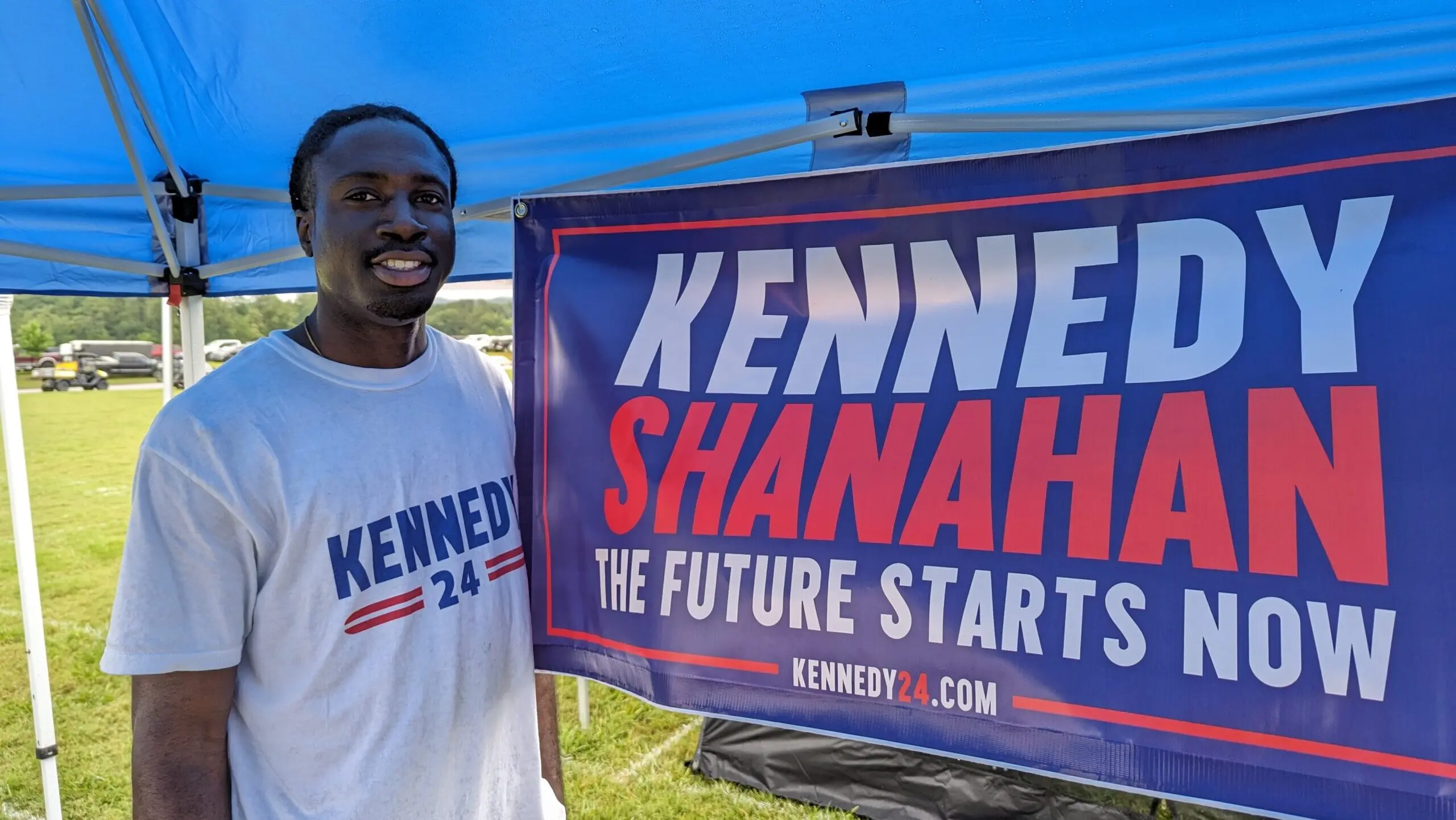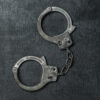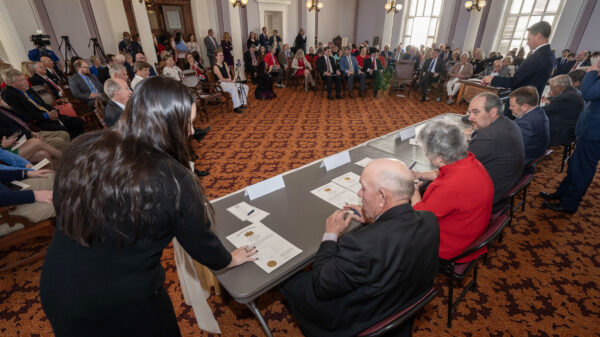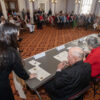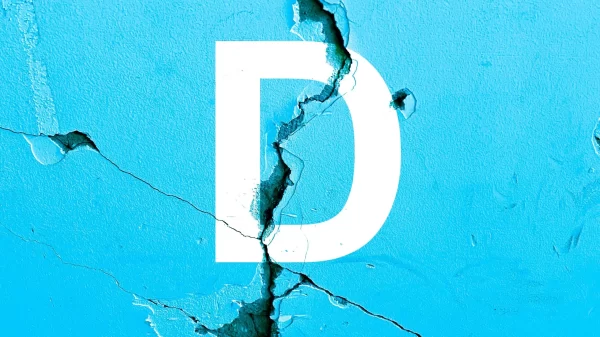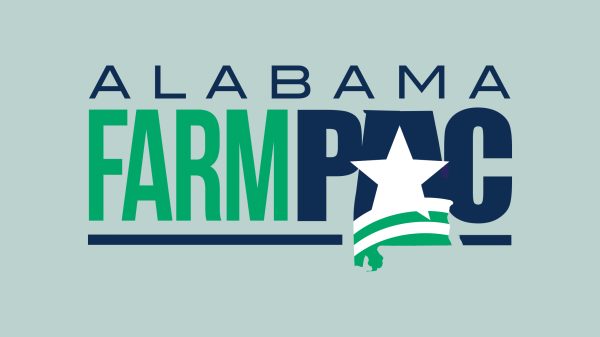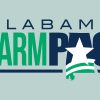|
Getting your Trinity Audio player ready...
|
On Saturday, visitors to the annual Alabaster City Fest could stop by booths representing local bookstores, bakeries, and a presidential campaign. Robert F. Kennedy Jr. campaign volunteer Oluchi Onwuvuche was collecting signatures to help get the third-party candidate on the ballot in November.
Onwuvuche told APR he has been a political independent since 2017, despite coming from a traditionally Democratic family, and was drawn to Kennedy in the wake of the COVID-19 pandemic.
“Being a part of Black America, we’re always asked to really follow suit and just follow the policies,” Onwuvuche said. “I took it for myself to really find out whatever is suggested out here, is it for me?”
He specifically pointed to “medical freedom” and Kennedy’s “interest in fixing the national debt” as key factors in his decision to support the independent candidate. Kennedy has made a name for himself as a candidate, in addition to his family name, by being a vocal skeptic of the COVID-19 vaccines and vaccine mandates.
Before the COVID pandemic, Kennedy was already a longtime anti-vaccine advocate, spreading debunked research about childhood vaccines causing autism and a host of other unrelated conditions. During and after the pandemic, he has taken advantage of anti-vaccine sentiment and “COVID trutherism” to build his reputation further.
He wrote a book titled “The Real Anthony Fauci,” said that the anti-depression medication Prozac caused school shootings, and most controversially claimed that “COVID-19 is targeted to attack Caucasians and Black people,” and Chinese people and Ashkenazi Jews were “most immune,” leading to allegations of antisemitism.
But if Kennedy does get on the ballot in November, Onwuvuche is “for sure” optimistic about the campaign’s chances because voters will “come to a realization that they do have a choice out here.”
In Alabama, independent presidential candidates like Kennedy need at least 5,000 signatures from verified Alabama voters in order to get on the ballot.
Early in May, a member of the Kennedy press team told APR that the campaign had “close to 1,000 signatures” in Alabama. On Sunday, they said the campaign was planning on having “more than 8,000 verified signatures by the Aug. 15 deadline.”
One festival attendee, Derek Hickman, said he signed the campaign’s petition because he doesn’t “feel there should be any barriers for someone who wants to run for government office.”
“The exclusionary tactics by the Democratic and Republican parties to keep third party nominees off the ballot are a violation of First Amendment rights,” he stated.
So far, the Kennedy campaign has already secured ballot access in eight states: California, Delaware, Hawaii, Michigan, Oklahoma, South Carolina, Texas, and Utah. The campaign also says it already has enough signatures to make it onto the ballot in nine others.
However, even if Kennedy secures ballot access in Alabama, polling suggests that, despite Onwuvuche’s optimism, Kennedy is unlikely to win the state.
In April, a poll sponsored by the Kennedy campaign found 56 percent of Alabama voters would support Kennedy in a two-way race between Kennedy and Biden, and 31 percent of Alabama voters would support Kennedy in a two-way race between Kennedy and Trump.
In both hypothetical matchups, a significant number of poll respondents remained undecided (14.4 percent and 12.9 percent respectively).
But after Gov. Ivey signed legislation to ensure that the Democratic presidential nominee can be on the ballot, a two-way race is essentially an impossibility.
The most recent poll with state level data for Alabama and both Trump and Biden as options found only 4.1 percent of respondents planned to vote for “another candidate.” Nationally, the poll analysis website FiveThirtyEight’s polling averages suggest Kennedy will likely receive around 10 percent of the vote.
Even if Kennedy may not win Alabama, his presence in the race will almost certainly determine who wins key battleground states this November.








































